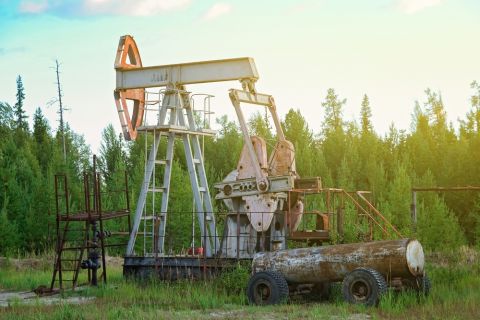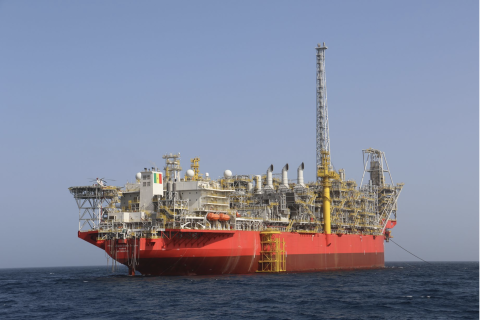The future of the oil and gas industry increasingly lies offshore, but access to explore and develop offshore resources is more and more at risk. With the recent tragedy in the Gulf of Mexico, it is clear to ocean stakeholders that the most important factor affecting ocean health and sustainability is the way business is done in the marine environment.
Although significant progress has been made in reducing oil input to the seas, a broader suite of concerns is emerging as ocean use increases. The expanding scope and scale of commercial activities by oil and gas, shipping, fisheries, aquaculture, renewable energy, mining, tourism, dredging, desalination, etc., is increasing the effect users have on one another as well as on ocean values important to other stakeholders.
The impacts of ocean noise, marine invasive species, water pollution, marine debris, and other consequences of ocean use are increasingly affecting access and the social license to operate offshore. Most, if not all, ocean industries contribute to these impacts. As a result, the private sector is collectively held accountable for the state of the marine environment.
Shared challenges, collaboration
To ensure continued access to marine space and resources, companies need to understand their ocean footprint and implement the policies and practices expected of responsible operators. Although many companies are working to address the impacts of their offshore activities, the best efforts by a single company or an entire industry will not be enough to address shared issues and their cumulative effects.
The oil and gas industry is showing the way on some issues. Quite a few companies are working together in the joint industry project on marine life and sound to support independent science to better understand the effects of sound on marine mammals and develop the technology to address this challenge. However, comprehensively addressing sound in the marine environment – like so many marine issues – requires the involvement of other industries to understand the problem and implement solutions.
Elsewhere, the shipping industry is making progress in tackling marine invasive species. Coordinated efforts are needed to ensure other industries also use best practices to avoid species introductions (e.g., from drilling rigs, dredging equipment, large fishing vessels, and other vectors).
The good news is that business benefits can result from working together to define problems, assess risks, support science, develop solutions, and test technology. Synergies and economies of scale can create direct cost savings and can generate long-term benefits by reducing risk, minimizing permit delays, avoiding public campaigns, and decreasing legal challenges.
The bad news is that stakeholders other than the ocean business community are defining and driving the marine environmental agenda with little involvement from the responsible ocean business community.
Responsible companies have the most to gain from collaborating with the rest of the ocean business community in developing solutions to shared marine environmental issues.
International, cross-sectoral business leadership
The WOC was created to address this situation, establishing the only international, cross-sectoral business leadership alliance on ocean sustainability. A growing number of companies with a longterm view of their ocean business share the WOC vision of a healthy and productive global ocean and its sustainable use and stewardship by a responsible ocean business community. WOC members include sustainability leaders from oil and gas, shipping, seafood, tourism, mining, and other ocean industries.
As more companies distinguish themselves by joining this unprecedented international industry ocean coalition, initiatives are being developed to tackle shared sustainability challenges. For example, the 193 governments that are party to the Convention on Biological Diversity (CBD) met in October 2010 to decide on measures to minimize the “impacts and risks of human activities on marine and coastal biodiversity” and develop marine protected area targets. The WOC is engaging with the CBD on behalf of ocean businesses, monitoring developments and providing detailed review, analysis, and input.
What is the future of offshore access? It is leadership companies in the oil and gas industry collaborating with like-minded colleagues from other ocean industries on cross-sector “Corporate Ocean Responsibility” to ensure responsible companies have the continued social license to operate.
Recommended Reading
US Drillers Add Oil, Gas Rigs for Third Time in Four Weeks
2024-02-09 - Despite this week's rig increase, Baker Hughes said the total count was still down 138 rigs, or 18%, below this time last year.
NAPE: Turning Orphan Wells From a Hot Mess Into a Hot Opportunity
2024-02-09 - Certain orphaned wells across the U.S. could be plugged to earn carbon credits.
Sangomar FPSO Arrives Offshore Senegal
2024-02-13 - Woodside’s Sangomar Field on track to start production in mid-2024.
NAPE: Chevron’s Chris Powers Talks Traditional Oil, Gas Role in CCUS
2024-02-12 - Policy, innovation and partnership are among the areas needed to help grow the emerging CCUS sector, a Chevron executive said.
CNOOC Makes 100 MMton Oilfield Discovery in Bohai Sea
2024-03-18 - CNOOC said the Qinhuangdao 27-3 oilfield has been tested to produce approximately 742 bbl/d of oil from a single well.




